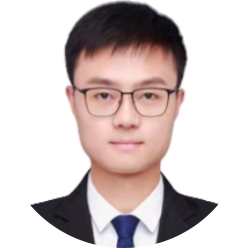Chair: Assoc. Prof. Haihong Qin, Nanjing University of Aeronautics and Astronautics, China

Haihong Qin was born in Jiangsu Province, China, in 1977. He obtained his Bachelor’s degree in Aviation Electrical and Electronic Engineering, Master’s Degree, and Ph.D. degree in Power Electronics and Motion Control from Nanjing University of Aeronautics and Astronautics, in 1998, 2002, and 2007, respectively. He joined the Department of Electrical Engineering of Nanjing University of Aeronautics and Astronautics in 2007. He studied in University of Maryland from 2009 to 2010, and in University of Nottingham from 2019 to 2020 as a visiting scholar. Currently, he is an associate professor of Department of Electrical Engineering in Nanjing University of Aeronautics and Astronautics. He is the founder of New Energy Power Generation Innovation Zone, and the technical director of Research Lab for Wide Bandgap Devices’ Applications. His research interests include power electronics, motion control and applications of wide bandgap devices in more electric aircraft. He published 9 books and more than 100 papers, and is the holder of 40 Chinese patents. He was awarded Distinguished Expert in Innovation and Entrepreneurship by Science and Technology Department of Jiangsu Province.
Co-chair: Ms. Ziyue Zhu, Changzhou University, China
 Ziyue Zhu was born in Jiangsu Province, China, in 1992. She obtained her bachelor’s and master’s degree in Electrical Engineering from Nanjing University of Aeronautics and Astronautics, in 2014 and 2017. She worked as an electric engineer of the Bosch Group R&D department in Changzhou. She is currently a lecturer in Xbot School of Changzhou University. She was honored as "My Favorite Teacher". She also won the Bronze Award instructor of the 7th China College Students' 'Internet+'Innovation and Entrepreneurship Competition and the first prize excellent instructor of the provincial competition, the second prize instructor of the 20th National Undergraduate Robot Competition ROBOMASTER 2021, and the first prize instructor of the 20th National Undergraduate Robot Competition in 2021. She is co-author of 2 books and and is the holder of 8 Chinese patents. She received the Best Paper Award and the Third Place Thesis Award from the lEEE Industry Application Society. She served as a guest associate editor for the IEEE Journal of Emerging and Selected Topics in Power Electronics, and an invited topic chair for the IEEE Energy Conversion Congress and Exposition.
Ziyue Zhu was born in Jiangsu Province, China, in 1992. She obtained her bachelor’s and master’s degree in Electrical Engineering from Nanjing University of Aeronautics and Astronautics, in 2014 and 2017. She worked as an electric engineer of the Bosch Group R&D department in Changzhou. She is currently a lecturer in Xbot School of Changzhou University. She was honored as "My Favorite Teacher". She also won the Bronze Award instructor of the 7th China College Students' 'Internet+'Innovation and Entrepreneurship Competition and the first prize excellent instructor of the provincial competition, the second prize instructor of the 20th National Undergraduate Robot Competition ROBOMASTER 2021, and the first prize instructor of the 20th National Undergraduate Robot Competition in 2021. She is co-author of 2 books and and is the holder of 8 Chinese patents. She received the Best Paper Award and the Third Place Thesis Award from the lEEE Industry Application Society. She served as a guest associate editor for the IEEE Journal of Emerging and Selected Topics in Power Electronics, and an invited topic chair for the IEEE Energy Conversion Congress and Exposition.
Co-chair: Dr. Yajun Zhao, Nanjing University of Aeronautics and Astronautics, China
 Yajun Zhao was born in Zhenjiang, Jiangsu Province, China, in 1990. He received the B.Eng. degree in electrical engineering in 2012, and the M.Eng. and Ph.D. degrees in power electronics and electrical drives in 2015 and 2022, respectively, all from Nanjing University of Aeronautics and Astronautics (NUAA), Nanjing, China.
Yajun Zhao was born in Zhenjiang, Jiangsu Province, China, in 1990. He received the B.Eng. degree in electrical engineering in 2012, and the M.Eng. and Ph.D. degrees in power electronics and electrical drives in 2015 and 2022, respectively, all from Nanjing University of Aeronautics and Astronautics (NUAA), Nanjing, China.
He joined the Electronic Technology Center at NUAA in 2023, where he currently serves as the Deputy Director. His research interests include aircraft power generation, power conversion, and electromagnetic compatibility (EMC) technologies. He has authored over ten academic publications and holds multiple Chinese patents. He was awarded the First Prize for Innovation and Entrepreneurship by the Ministry of Industry and Information Technology.
